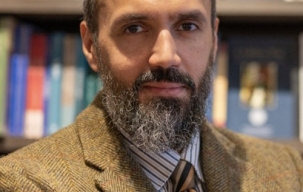Israel has a Mediterranean coast in its west with Lebanon and Syria bordering it in the north, Jordan to its east and Egypt to its southwest. It has a temperate climate with deserts in the southern and eastern areas of the country. Israel has a number of natural resources including important offshore natural gas reserves.
Population
Israel has an estimated population of approximately 8.8 million people, although there exist various estimations that differ on whether populations in annexed areas such as East Jerusalem are counted and the issue of how to count Israeli settlers in areas such as the Golan Heights and East Jerusalem.
The Israeli population is an estimated 74.4% Jewish, 20.9% Arab and other ethnicities make up 4.7%. The religious distribution of the country is 74.3% Jewish, 17.8 Muslim, 19% Christian, 1.6% Druze with 4.4% designated other.
The official language of Israel is Hebrew, which was revived from being a largely liturgical language upon the creation of the state of Israel. The Arabic language has special status in Israel.
Government
Israel is a parliamentary democracy. While there is no formal constitution, there are texts such as the Declaration of Establishment, the Basic Laws and the Law of Return which perform some functions of a constitution.
Israel has a president as head of state and prime minister as head of government. Israeli elections follow proportional representation to award sections of the Knesset’s total of 120 seats. Parliamentary elections take place once every four years, however, these terms are not fixed. Early elections can be called by presidential decree or a vote in the Knesset. Before elections, parties draw up lists of proposed candidates in order of preference, a proportion of which will be given seats based on the share of the votes won by the party. The president is elected by secret majority with an absolute majority in the Knesset and serves a single seven-year term.
Legal system
The Israeli legal system is a mixture of English common law, laws from the British Mandate days and then some religious laws from all three Abrahamic faiths. Israel withdrew its acceptance of the jurisdiction of the International Criminal Court in 2002. The Israeli Supreme Court is made up of a chief justice and 14 judges
History - Biblical Israel
According to Genesis 32.28, Israel was the name given to the Jewish patriarch Jacob. In Jewish biblical times, this name not only refers to northern tribes, but also to the entire nation. Historically, Jews have continued to regard themselves as the true continuation of the ancient Israelite national-religious community. In modern times, it also refers to the political state of Israel.
History - Zionism & The Promised Land
The Zionist movement religious and political ideas to create the modern state of Israel. Particularly influential was the Austro-Hungarian Jewish journalist Theodor Herzl and his famous 1896 treatise "The Jewish State." Herzl was considered to be the father of modern political Zionism, formed the Zionist Organisation and promoted immigration to Palestine to form a Jewish state.
There had always been a promised land of Israel in Jewish scriptures. But after the horrors of the 20th century, including pogroms and particularly the 1939-'45 Holocaust, many in the Zionist movement viewed the creation of a state of Israel as necessary for the survival of Jews across the world in general. Today, the idea of Israel as a safe-haven for Jews across the world continues to motivate policies including the Right of Return and the offer of Israeli citizenship for Jewish people across the world.
Emigration to Palestine
The late 19th century saw increased Jewish migration to Palestine. Once in Palestine, these groupings tended to organise themselves as agricultural communities. The Zionist movement took on a more political aspect as European Jews started to advocate for the creation of a Jewish state after viewing increasing anti-semitism on the continent. This would continue on a relatively minor basis until World War One. The conflict led to the dissolution of the Ottoman Empire, while giving Britain an increasingly important role in the region.
The Balfour Declaration
In 1917, Zionists convinced Britain to release the Balfour Declaration, which committed Britain to overseeing the creation of a Jewish state. The declaration - on November 2nd 1917 - remains controversial today, not least given the various promises Britain had already given to Arabs in Palestine which appeared to be contradicted by Declaration.
Ottoman defeat meant that it was not just Jews in the area that wanted their own officially-recognised state. Arab leaders were keen to carve out their own national identity from the ruins of the Ottoman Empire. Britain attempted a difficult balancing act of attempting to facilitate cooperation between Arabs and Jews, both hopeful of establishing their own state.
The Arab revolt
The British failed to reassure the Palestinians of their future as a sovereign people, particularly in the light of increased Jewish immigration. This led to a violent three year nationalist uprising by Palestinians against the British administration known as the Arab Revolt which began in 1936. The rebels demanded an end to Jewish immigration and to land purchases in Palestine by Jews with the aim of creating the long-for Jewish homeland.
The Revolt in turn saw increasing militarisation of Jewish settlers. The leading members of these different groups, each with their own politics, would become key voices in the eventual foundation of an Israeli state.
War and emigration
As conditions in Europe worsened for Jews in the 1930s and increasing numbers came to Palestine, Britain no longer encouraged Jewish migration to the region meaning it was not a viable refuge for most Jews fleeing the horrors of WW2. The murder of at least 6 million Jews by the Nazis greatly strengthened the argument and calls for a Jewish homeland.
Struggle for independence
At the end of the war the Zionist movement reapplied itself with renewed vigour to its mission of a home in the region. As the intense pressure from both Arabs and Zionists became too much for London to manage, management of the issue was handed onto the UN who proposed a division of two states, one for Arabs and the other for Jews. This was immediately rejected by Arabs and sparked terrible violence in the region until the Zionist forces would eventually come out ahead, resulting in the 1948 declaration of the state of Israel.
War of independence
Increasingly worried at the speed at which the Zionist dream of a Jewish homeland in Palestine was being realised, and with states such as the US and the USSR quick to recognise Israel, 5 Arab nations – Egypt, Lebanon, Iraq, Syria and Jordan (then Transjordan) – launched an invasion in May 1948 against the newly-announced state. With significantly smaller numbers, Israeli troops were able to repel the Arab armies and a UN-brokered ceasefire was agreed by the belligerents the following month. Fighting would break out again, however, until a final armistice of July 1949. The outcome of the fighting was an Israel gaining territory in what are now known as pre-1967 borders. It also left the world with a new human tragedy: a huge number of Palestinian refugees uprooted by the fighting and forced to leave their homes for refuge across the region but particularly in Syria, Jordan and Lebanon.
Israel’s first election
The first Israeli election would begin a process of majority government in Israel that continues to this day. David Ben Gurion would be the winner, although of course as part of a coalition. His first term would be defined by the challenges of running a state without an official constitution, gearing society in a manner that was able to accept the huge numbers of new immigrants to the country, many of whom were arriving fresh from the horrific circumstances in Europe. It was in this era that the Law of Return would be passed, a law that granted any Jew immediate Israeli citizenship and still a seminal aspect of Israel today. State funding was a huge issue at first, with the country relying heavily on foreign donations and international aid.
On the international stage the period was marred by continuing violence between Arab and Jewish neighbours. Despite the support of many key international partners, Israel was operating in an the immensely complex diplomatic environment of the early Cold War, where both the US and USSR were trying to win the support of non-alligned countries, many of which were the new and increasingly strategic Arab republics.
Suez Crisis
Israel, along with Britain and France, was part of the failed response to Presient Nasser of Egypt’s shock nationalisation of the Suez Canal in 1956. The US sponsored a settlement that followed the botched attempt to take back the canal, which led to a period of relative degree of peace on Israel’s southern border. President Eisenhower, a committed anti-colonialist and infuriated by the botched attempt to regain the canal, oversaw a deal by which UN peacekeepers would be kept in Sinai. This allowed Israel to secure its southern border while despite President Nasser’s victory in keeping the Suez Canal for Egypt. Peace was not total though, and after Suez, Israel rushed to militarise especially with French equipment.
Six-Day War
In 1967, the next conflict would come after increasingly frequent skirmishes along Israel’s northern border with Syria. Rapidly increasing tensions after Syrian bombardent, and Israel’s shooting down of 6 Syrian fighter jets, the UN brokered ceasefire in place since the ending of the Suez crisis was quickly abandoned. There were increasing signs that Arab armies were planning an attack. So, with ruthless speed, Israel carried out pre-emptive strikes primarily against key Arab air power, which included destroying much of Egypt's airforce on the ground. By noon of the first day, June 5th, 1966, Israel had destroyed approximately 450 aircraft belonging to Egypt, Jordan and Syria and had knocked out 18 airfields.
Following its successful air campaign, Israel pushed into Gaza and the Sinai Peninsula, eventually gaining control of Gaza, Sinai and even the Suez Canal. Israel would also gain territories on other frontiers. Israeli forces launched a decisive push into the West Bank, also capturing East Jerusalem and the Old City. In the north, Israel forced the Syrian army into retreat in the Golan Heights. In just six days, Israel doubled the territory under its control including Golan and land now called the Occupied Territories.
Occupied territories
While the UN called for a withdrawal, Israel instead annexed East Jerusalem and administered the Occupied Territories, primarily the West Bank and Gaza, through military bodies. Initially, Arab states were reluctant to make peace with Israel, but the ice began to thaw in the late 1970s when Israel and Egypt agreed to bury the hatchet.
Yom Kippur War
The next Israeli-Arab war was an offensive launched by Egypt and Syria on the Jewish holiday of Yom Kippur in October 1973 to win back territories both countries had lost in the 1967 war.
Egypt crossed into Sinai, initially with relatively few casualties, while Syrian troops assaulted the Golan in an attempt to win back the strategically important heights.
Superpower rivalry risked escalating the conflict, when the US and the USSR started to support their respective allies. Arab states imposed an oil embargo, causing an severe crisis in oil supply. Despite the success of the initial Arab assaults, Israeli forces were able, with significant causalites, able to repel some of the early Arab gains. A ceasefire came in a month later in November and subsequent peace agreements saw Israeli withdrawal from Sinai and a reduced Egyptian presence east of the Suez Canal. In Golan, a buffer zone between Israel and Syria was implemented. (*See Golan page.)
Post Yom Kippur
Yom Kippur proved economically disastrous for the West. Saudi Arabia led a five month OPEC oil boycott against countries which supported Israel, including the US and the UK, which led to fuel shortages and sharp price rises.
For Israel, the period after Yom Kippur War was hard. Its economy had been stretched by immense expenditure during the war. Also, there were signs of increasing support for the Palestinian cause at the UN and in countries in Europe and Asia. The Labour Party establishment was also the object of resentment in parts of Israeli society. This led to the right wing Likud winning the election in 1977, the first government in Israeli history which would not be led by Labour.
Camp David and peace with Egypt
Between 1977 and 1979, there was a significant rapprochement between Israel and Egypt, leading to the Camp David Accords of 1978, brokered by US President Jimmy Carter, and and a peace agreement in 1979 which led to Israeli withdrawal from Sinai and cessation off the state of war that had existed between the two nations since 1948.
But conflict with the Palestinians continued, resulting in incidents such as the massacre of Israeli athletes at the Munich Olympics of 1972 and the raid on Entebbe, Uganda in 1976. Israel also carried out incisions of Lebanon as a result of the PLO's presence there, most notably with its invasion of 1982.
Oslo Accords and Intifadas 1 and 2
1987 witnessed the first significant Palestinian uprising. It was called "the Intifada" and it came to an official end in 1993 with the signing of the Oslo 1 Accord by Israeli prime minister Yitzhak Rabin and the PLO's Yasser Arafat. The talks were aimed at helping the Palestinians realise self-determination the self-determination. they wanted.
The Oslo Accords led to the establishment of the Palestinian Authority with a large degree of self-government in Gaza and large areas of the West Bank, but they fell short of allowing the Palestinians their own state.
Gaza withdrawal
In 1994, Israeli withdrew from Gaza. The Oslo 2 agreement, signed in September 1995, scoped out further the responsibilities of new Palestinian authorities in the Occupied territories. Yitzhak Rabin was assassinated by a settler extremist two months later. In May 1999, the agreed interim period ended without the signing of final peace agreement. The interim Palestinian Authority became permanent. In July 2000, talks at Camp David between the two sides also failed to reach a peace agreement.
In September 2000, a 2nd Intifada began. It followed a provocative visit by Ariel Sharon to the Haram esh-Sharif/Temple Mount in the Old City of Jerusalem, also known as the Al Aqsa complex, a site holy to both Muslims and Jews.
Conflict and security
The 21st Century has so far been one of tension and conlfct for Israelis and Palestinians. Attacks by Palestinians on Israelis during the 2nd Intifada of the early 2000s, including suicide bombings, led to the construction of the controversial Israeli West Bank Security Barrier, which runs a total of 708 km (404 miles).
The Palestinians have also been at war with each other, culminating in the conflict between Hamas and Fatah in Gaza in 2006-2007. This left Hamas in full control of Gaza and Fatah with authority in the West Bank. So far talks at resolving differences between the two have failed.
Israel-Hamas war in 2023
On October 7th, 2023, Hamas launched what was considered to be the most ferocious attack experienced by Israel since the Yom Kippur War almost exactly 50 years earlier. Hamas militants launched thousands of rockets on Israel and attacked communities killing hundreds of civilians - men women and children. In retaliation, Israel launched extensive air strikes against Gaza that also resulted in many civilian deaths.
Unresolved issues before October 2023
Before October 2023, tensions had remained high over the Occupied Territories of the West Bank, in particular East Jerusalem, as well as Gaza. Rocket attacks from Gaza on Israel by Hamas and other militants have brought retaliatory airstrikes and land incursions to the Strip, supported by a sea blockade.
In April 2021, the Palestinian Authority had cancelled elections, ostensibly because Israel appeared not to allow the inclusion of East Jerusalem in any poll. In October 2021, the US criticised Israeli-approved plans for another 3,000 settler homes in the West Bank.
Abraham Accords
In September 2020, Israel signed a full normalisation agreement with two Arab nations, the United Arab Emirates and Bahrain. These normalisation agreements are known as the Abraham Accords.
Israel has opened embassies in both Manama and Abu Dhabi and north the UAE and Bahrain have reciprocated. The UAE and Israel are even planning a joint unmanned mission to the moon.
In December 2020, Morocco also signed the Abraham Accords, and other Arab nations could soon follow suit.
On March 28th 2022, Israel hosted a historic summit attended by the foreign ministers of 4 Arab nations, including Egypt and the 3 Abraham Accords nations of Bahrain, Morocco and the United Arab Emirates.
Netanyahu returns & historic protests over judicial changes
Likud leader Benjamin Netanyahu returned as Prime Minister for his 6th term, following the December 2022 elections. His cabinet included controversial figures such as Itamar Ben-Gvir and Bezalel Smotrich, both leaders of far right and ultra-nationalist parties.
Immediately, Mr Netanyahu embarked on a series of judicial changes - widely known as the "judicial overhaul" that were interpreted as an attempt to seriously water down the powers of the courts. These changes were particularly aimed at the Supreme Court, whose extensive powers hitherto include judicial review of government decisions and a veto over cabinet appointments.
The proposed changes have led to months of unprecedented protests and strikes across Israel. In Spring 2023, under domestic and international pressure, the government opened compromise negotiations. Mr Netanyahu received criticism from some Israeli quarters over alleged security lapses leading up to the Hamas attack of October 2023.
 Members content
Members content

